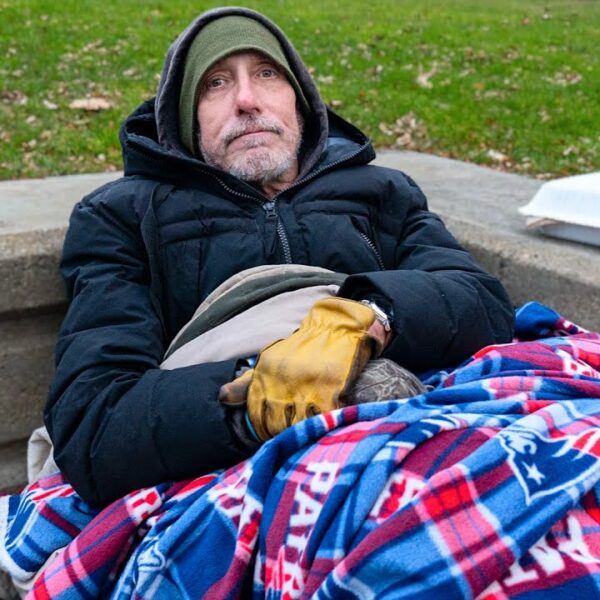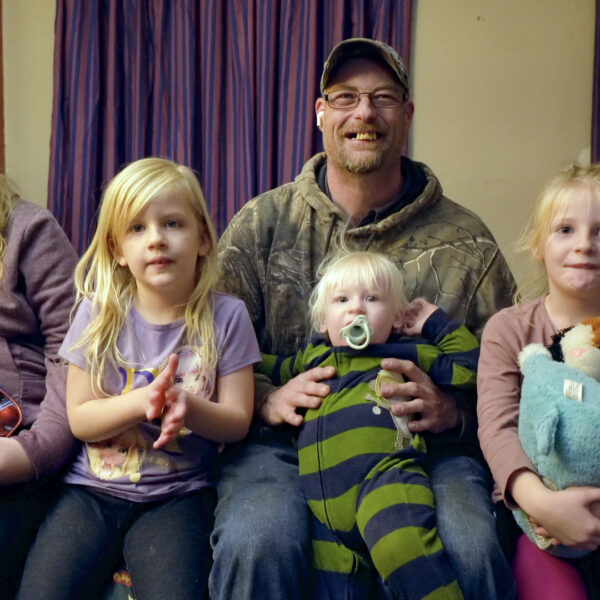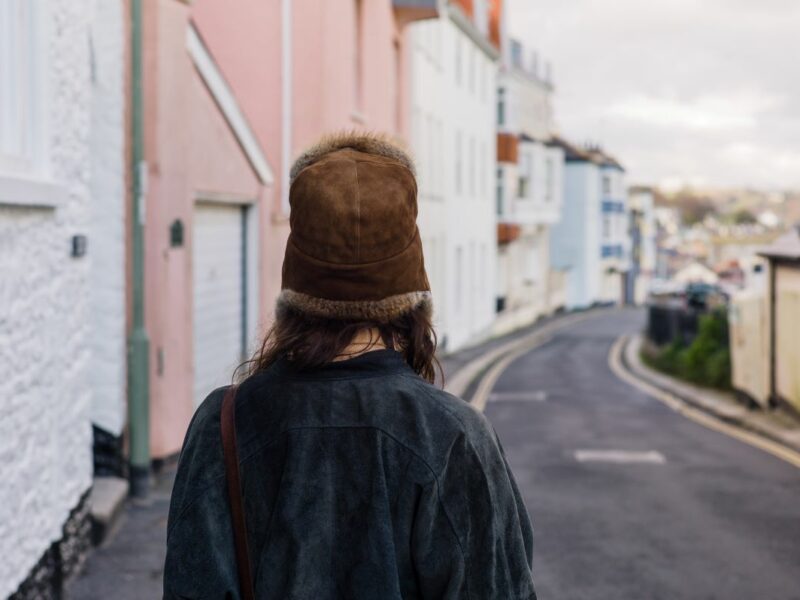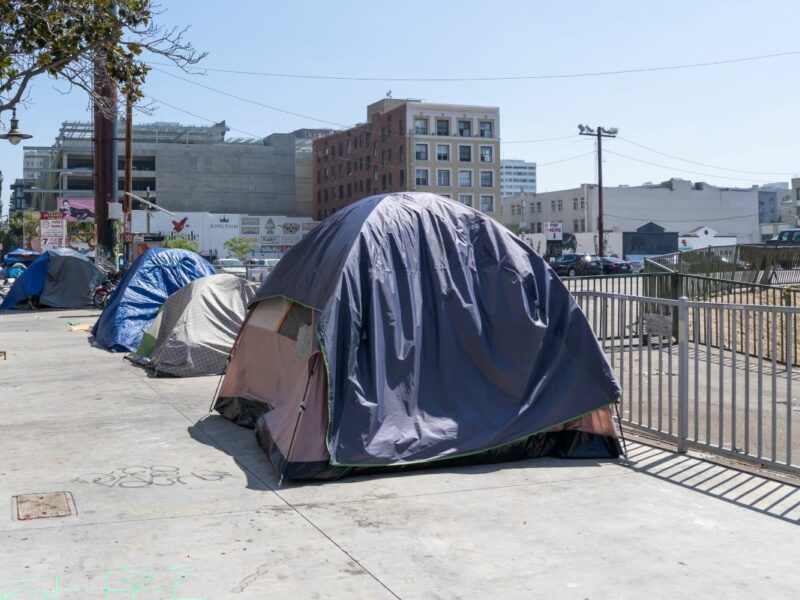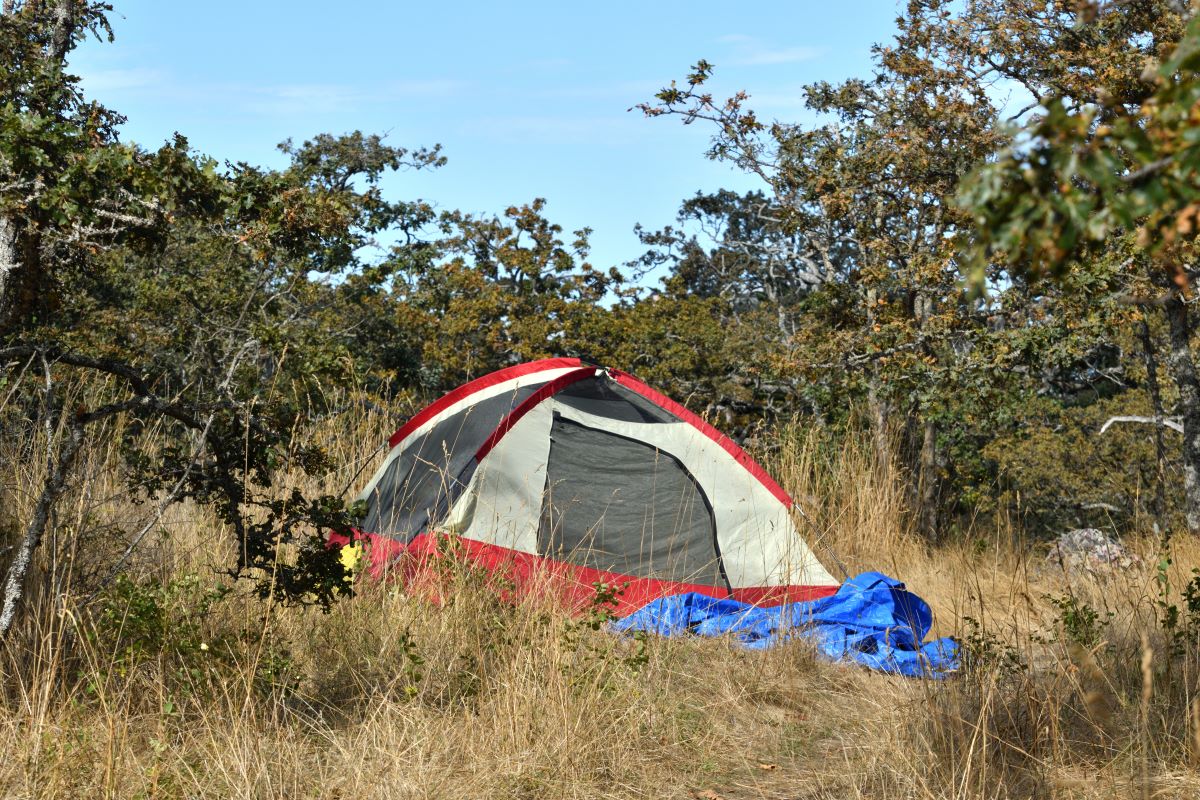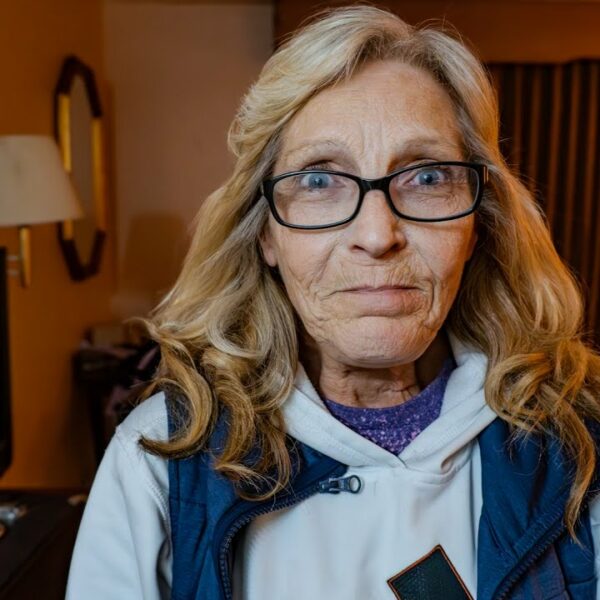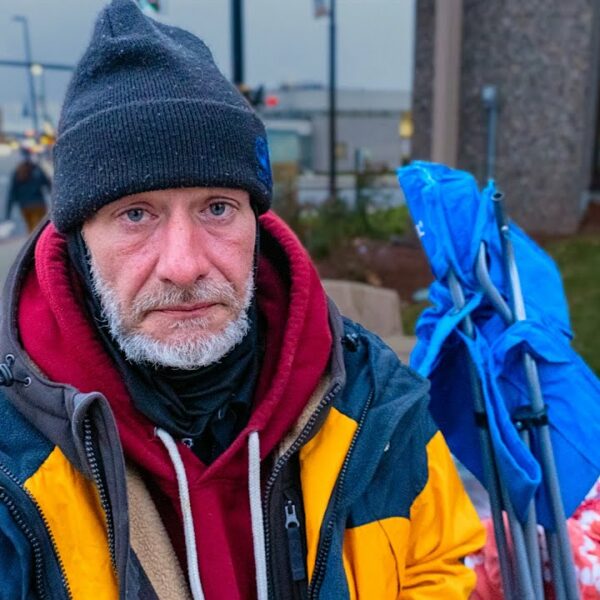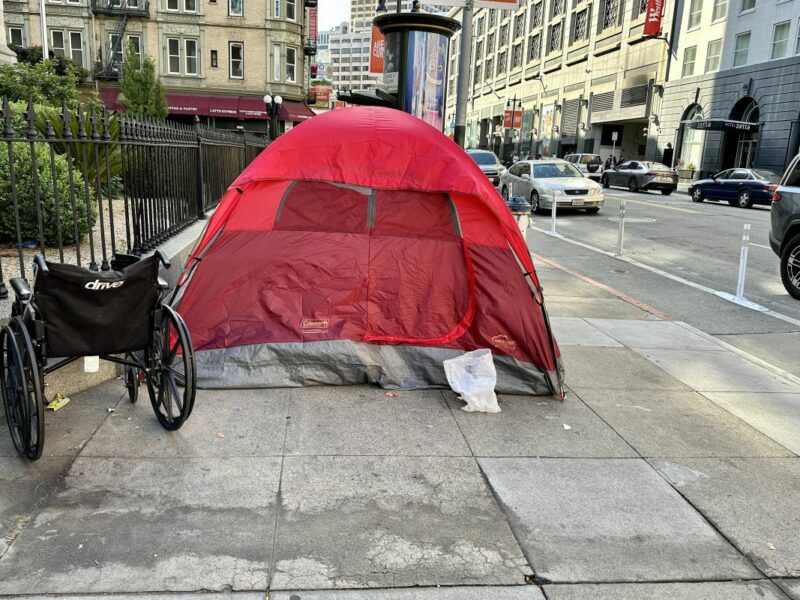States Are Choosing to Criminalize Homelessness Rather Than Implement Proven Solutions
A northern suburb of Seattle passed a law that criminalizes sleeping outside on May 18 despite not having local shelter options for people experiencing homelessness.
The ordinance passed by the City Council of Edmonds, Washington, gives homeless people two options. They can either purchase a bus ticket to a shelter in Snohomish County that is more than 20 miles away or risk being fined $1,000 with a possibility of serving 90 days in jail.
The legislation passed as cities across the country continue to increase the criminalization of visible homelessness following the pandemic.
According to a report by My Edmonds News, legislators drafted the ordinance in response to two incidents from last year. Police arrested a man for sleeping outside of the local library during one. In the other, a woman camped out on a local multi-use trail before police arrested her.
According to the report, local leaders and legal experts spoke out against the ordinance. State Rep. Strom Peterson (D-Edmonds) told City Council to rethink the law in its entirety because it will only serve to put homeless people in jail instead of connecting them with services or housing.
“You are creating a new misdemeanor, which is a crime,” Peterson said during the meeting. “The problem with creating a new crime is the spiral people can get into when facing the criminal justice system.”
Patricia Taraday, an attorney with Lighthouse Law Group, a municipal services law firm, told the council that the ordinance might run afoul of the Martin v. Boise decision from 2021. In this decision, the 9th Circuit Court of Appeals ruled that cities cannot fine homeless people for sleeping outside if they do not have shelter space.
“The ordinance will not be enforced against homeless individuals when no available shelter [exists] for that particular person,” Taraday said. “Homeless individuals will not be arrested for sleeping outside when there is no available shelter.”
City Council President Vivian Olson said the ordinance gives law enforcement the tools to remove individuals who refuse shelter or services and are disturbing the public.
“I don’t agree that this is criminalizing homelessness,” Olson told The Seattle Times. “If anything, we’re criminalizing not accepting the support and help when we’re offering it. There will be people who will refuse literally everything, no matter how perfect.”
Camping bans have come under increasing scrutiny since the beginning of the pandemic in March 2020.
Soon after that, several states instituted eviction moratoriums to keep people who lost income or employment housed. Meanwhile, municipalities across the country used federal relief funds to purchase hotel rooms and help people sleeping outside find non-congregate shelter.
But as relief programs have ended, several states have increased their use of camping bans to try and limit visible homelessness as much as possible.
In Tennessee, state lawmakers passed a bill that makes it a felony for a homeless person to camp on state-owned property.
Several cities in Colorado have also increased their enforcement of camping bans. For instance, Denver has increased its use of homeless sweeps over the past two years and has created a civilian-led street enforcement team. City officials have consistently claimed that these efforts are meant to help people connect with services. However, city data says otherwise.
According to data collected by Housekeys Action Network Denver, a housing advocacy nonprofit, Denver police officers have made more than 27,000 contacts with unhoused folks in the 10 years that the law has been on the books. However, few of the contacts resulted in connections to services.
A review of the street enforcement team’s daily activity log by the Denver VOICE, a street newspaper, found that just five percent of the team’s contacts result in service connections. In most instances, the team simply issued “move along” orders, which require homeless people to uproot and move to another part of town.
The popularity of camping bans as a political solution to homelessness seems to be growing as well.
A report by Stateline found that an organization known as the Cicero Institute, a think tank based in Texas, has been helping several municipalities craft their camping ban legislation. The think tank says its goal is to find “entrepreneurial solutions to public problems,” according to its LinkedIn page.
The Cicero Institute helped craft nine bills in six states over the last two years. Some of the states where lawmakers introduced legislation include Arizona, Missouri, Oklahoma, Texas, and Wisconsin.
Advocacy groups like the National Homeless Law Center (NHLC) oppose the bills because of their ineffectiveness in connecting people with housing and services.
“[These bills aim] to move people, either into these internment camps under threat of arrest or into prison itself or into psychiatric facilities,” Eric Tars, legal director for the NHLC, told Stateline.
How You Can Help
The pandemic proved that we need to rethink housing in the U.S. It also showed that many programs designed to address homelessness are rooted in law enforcement rather than social services.
Contact your officials and representatives. Tell them you support revamping the way your city addresses homelessness. Handcuffs do not get anyone closer to stable housing. Instead, we need to focus on compassionate solutions, which is the first step to ending homelessness.



